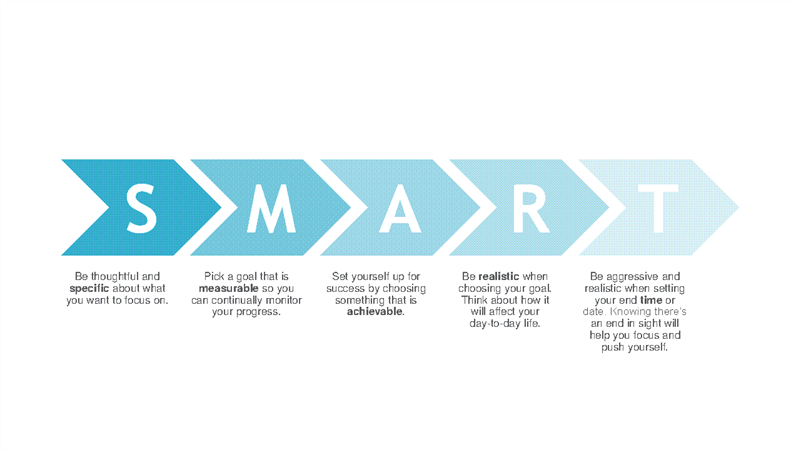
I often lament the conundrum that when I have nothing to do, it is super hard to get anything done…
Raise your hand if you’ve reorganized your sock drawer, seen every COVID-19-related meme, or learned the latest and greatest TikTok dance recently? You, like most of us, probably are suffering from a lack of motivation over the past few weeks. Motivation is often impacted by the powerful emotion of fear, and there is quite a bit of fear these days. But as the saying goes, if there’s a will, there’s a way!
Intrinsic vs extrinsic motivation
As educators, we know the topic of motivation well. We balance our classroom management techniques on a fulcrum of intrinsic vs extrinsic motivators.
Intrinsic motivation is found within. It is that sense of purpose and drive that helps us accomplish a goal for our own satisfaction. Intrinsic motivation can lead to more interest, more enjoyment, more persistence, and more success.
Extrinsic motivation is powered by the offer of a reward or to avoid negative consequences or punishment. The best forms of extrinsic motivation provide feedback and reinforcement for completing a task or job well.
While we may strive to incite intrinsic motivation, do remember that we all need a gold star once in a while! Extrinsic rewards aren’t inherently bad. It’s when extrinsic rewards are excessive that they can have what is called an “overjustification effect,” which negates any initial intrinsic motivation one might have had. In actuality, extrinsic motivators can encourage us to try something we may not have thought we were interested in; they can push us up and over that hump; they can provide feedback or reinforcement. So go ahead, incentivize and reward a student or even yourself from time to time. Just aim to do it in a way that sparks curiosity and boosts confidence, both of which can increase intrinsic motivation over time.
How else can you pique intrinsic motivation for yourself? Remember to:
- Dream big! – Move beyond your “present bias,” and envision your future self.
- Commit to goals – Whether small or big, write down or visualize your goals to bring them into focus and make them concrete and actionable.
- Feed your passion – Recognize what makes you feel happy, fulfilled or accomplished. Dedicate time in your day for that type of work, even if some may categorize it as a “hobby.”
Even with a strong sense of intrinsic motivation, we all can get caught up in the vortex of procrastination. For most, procrastination is not an issue with time management but with emotion management (e.g., anxiety, fear, frustration, insecurity, self-doubt), which is definitely understandable given our global circumstances. Let’s say you feel a sense of anxiety when you think about a certain task you need to do.. so you take a break from thinking about it. The break provides a temporary good feeling of relief … but then when you revisit the task at hand, you are burdened with guilt for having put it off plus the underlying anxiety (“procrastination cognitions”). All of which compounds the issue, and thus perpetuates the cycle of procrastination!
So how can you help address the emotional management side of life?
Practice self-compassion
Self-compassion leads to more positivity and more productivity. Give yourself permission that our day-to-day routines are not our normal ones, and we do need time to adjust. It’s normal to not feel as productive as we normally perceive ourselves to be.
Modify goals
Teachers know this best! There is a reason why we write all in pencil in our planbooks. Similarly, consider how you may need to revise your current goals. Focus on long-term goals but break the path to success into smaller steps or smaller goals (see what makes a SMART goal).
Teachers know this best! There is a reason why we write all in pencil in our planbooks. Similarly, consider how you may need to revise your current goals. Focus on long-term goals but break the path to success into smaller steps or smaller goals (see what makes a SMART goal).

Jump in
Take a deep breath, and go! Don’t wait for a particular mood to shift or set in. Procrastination can cause guilt, but guilt is associated with procrastinating in the first place!
Procrastinate for a few more minutes (well, 13:56 to be exact) and watch Tim Urban’s TED Talk, Inside the Mind of a Master Procrastinator:
At the end of the day, remind yourself that we, procrastinators, can be quite visionary, so it’s not all bad! The negative feelings we have come from a sense of self-awareness, and self-awareness is a critical life skill to have.
Success can still be found if you’re willing to embrace and work within constraints. And when seeking motivation, remember to:
- Slow down: much of our lack of motivation comes for a feeling of “situational overwhelm”
- Reframe the situation: find the positive in the negative (one of my favorites recently is the popular meme reminding us that “You’re not stuck at home, you’re safe at home”)
- “Let it go!” Sing this message loud and proud when times get a tad too tough; the theme song from the movie Frozen resonated with so many due to its core message!
Darri Stephens is a former member of Teach for America and a seasoned educator, with more than 10 years’ experience in Los Angeles and New York City public schools. She’s a published author, who has also worked for education-focused media companies including Nickelodeon, IMAX, EdSurge, and Discovery Education. With master’s degrees in education from both Harvard and Stanford, she’s passionate about creative curriculum development that pushes boundaries, especially considering the influx of today’s technologies. Her most recent positions as Senior Director of Content at Common Sense and Director of Education at Wonder Workshop underscore her love of instructional design, writing, and the ever-changing edtech world – so much so that she has now founded her own content consulting agency, Darrow Ink.
Categorized as: Tips for Teachers and Classroom Resources
Tagged as: Toolkit: Stay Motivated, Trauma and Resilience
